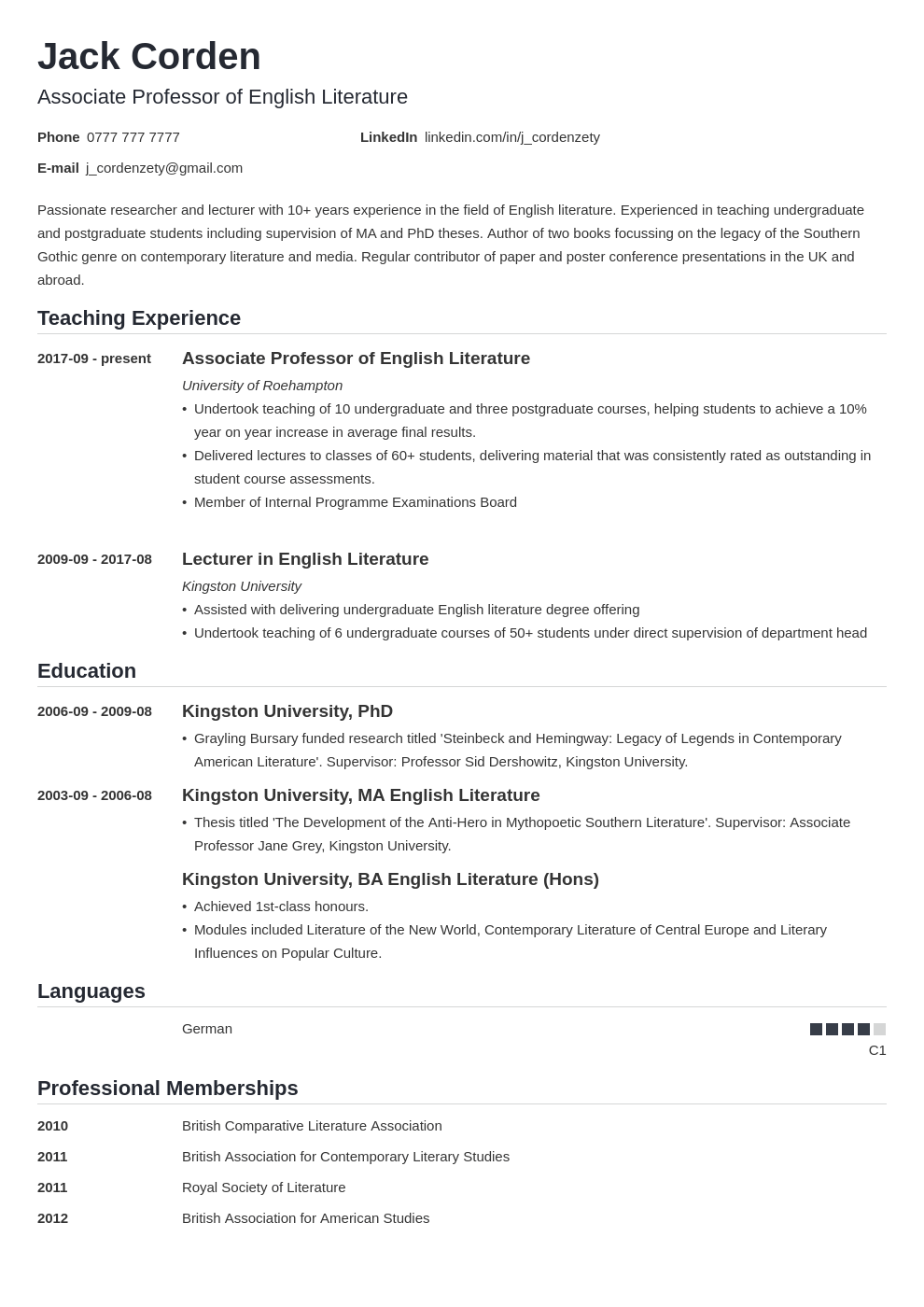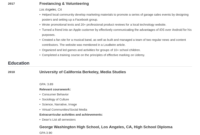Crafting a compelling curriculum vitae as an academic researcher isn’t just about listing your achievements; it’s about telling a coherent story of your intellectual journey and contributions. Unlike industry resumes that often focus on brevity and quantifiable impact, an academic CV is a comprehensive document that meticulously details your scholarly output, research experience, teaching roles, and service to the academic community. It’s your professional autobiography, designed to showcase your expertise and potential within the highly specialized world of academia.
Understanding what to include, how to structure it, and how to tailor it for different opportunities is crucial for standing out in competitive applications. A well-designed cv template for academic researchers serves as your roadmap, ensuring you don’t miss any vital sections and present your qualifications in a clear, professional, and impactful manner. Let’s explore the essential components that will make your academic CV a powerful tool for your career advancement.
Key Sections to Include in Your Academic CV Template
Building an effective academic CV starts with recognizing its unique structure, which often extends beyond a couple of pages, unlike a typical resume. Its purpose is to provide a detailed and exhaustive record of your academic and research career, making it crucial to include specific sections that highlight your scholarly contributions. Each part serves a distinct purpose, collectively painting a complete picture of your expertise and dedication.
Contact Information and Personal Details
At the very top, you’ll want to place your full name, professional title, and all relevant contact information. This includes your email address, phone number, and perhaps a link to your professional website, ORCID profile, or LinkedIn page. While optional, an ORCID ID is highly recommended as it provides a persistent digital identifier that distinguishes you from other researchers and helps link your scholarly outputs. Think of this section as your professional calling card, making it easy for hiring committees to reach out.
Research Interests and Summary
Immediately following your contact information, a concise research summary or statement of research interests is invaluable. This is your chance to articulate your primary areas of expertise, your overarching research questions, and the methodologies you employ. It acts as a quick overview, giving the reader an immediate sense of your academic identity and the kind of contributions you aim to make. Keep it focused and impactful, perhaps just a paragraph or two.

Education
This section details your academic degrees, starting with the most recent. For each degree, list the institution, location, degree obtained, major or discipline, and the dates of attendance or graduation. For doctoral degrees, it’s also common practice to include your dissertation title and the name of your advisor. Highlighting any honors, distinctions, or scholarships received during your academic tenure can further strengthen this section.
Publications and Presentations
This is arguably the most critical section for academic researchers. It showcases your scholarly output and intellectual contributions. Organize your publications by type, such as peer-reviewed journal articles, book chapters, books authored/edited, and conference proceedings. Follow a consistent citation style relevant to your field (e.g., APA, MLA, Chicago, Vancouver). For each entry, include full bibliographic details. Similarly, list your presentations at conferences, invited talks, and seminars, noting the event name, location, and date. If you have publications that are “in review” or “forthcoming,” you can include them under separate subheadings, indicating their status.
- Peer-Reviewed Journal Articles
- Books and Book Chapters
- Conference Presentations and Posters
- Technical Reports and Working Papers
Grants and Awards
Showcasing your ability to secure funding and earn recognition is paramount. List all grants, fellowships, scholarships, and awards you have received, specifying the awarding institution, the amount (if applicable), and the period covered. This demonstrates your capacity for independent research, your project management skills, and your standing within your field.
Teaching Experience
Even if your primary focus is research, demonstrating teaching competence is often beneficial, especially for faculty positions. Detail the courses you’ve taught (as instructor of record or teaching assistant), your responsibilities, the number of students, and any curriculum development or mentorship activities. If you have a teaching philosophy statement, you might reference it here or prepare it as a separate document.
Professional Service and Leadership
This section highlights your contributions to your academic community. Include any departmental, university, or professional organization committee work, peer review activities for journals or conferences, editorial board memberships, and organizational roles in academic events. This demonstrates your commitment to the broader scholarly enterprise and your leadership potential.
Tailoring Your Academic CV for Different Opportunities
While a comprehensive cv template for academic researchers provides a robust foundation, the most successful applications involve a degree of customization. Think of your academic CV not as a static document, but as a dynamic portfolio that you adapt to highlight the most relevant aspects of your experience for each specific opportunity. The key is to understand the nuances of the role you’re applying for and subtly shift the emphasis of your achievements.
For instance, if you’re applying for a research-heavy postdoctoral fellowship, you’ll want to bring your most impactful publications, ongoing research projects, and specialized methodological skills to the forefront. You might expand on the specific techniques you’ve mastered or the unique datasets you’ve analyzed, demonstrating your immediate readiness to contribute to a principal investigator’s lab. Your teaching experience, while still listed, might not need the same level of detailed elaboration as your research.
Conversely, when targeting a tenure-track faculty position at a teaching-focused university, while your research remains crucial, your teaching philosophy, experience designing courses, and student mentorship capabilities should also be prominently featured. You might elaborate more on the specific courses you’re qualified to teach, any pedagogical training you’ve undertaken, or how you integrate your research into your teaching. Highlighting your commitment to student success and active learning approaches can be particularly compelling.
If you’re considering a transition to an industry research role, your academic CV needs a significant reframe. Industry employers are often less interested in the sheer volume of your publications and more focused on the transferable skills you’ve developed. This means translating your academic achievements into business-centric language. For example, instead of just listing your research projects, describe how they involved problem-solving, project management, data analysis, and effective communication.
- Data analysis and interpretation
- Project management and coordination
- Complex problem-solving
- Effective communication of complex ideas
- Grant writing and funding acquisition
By strategically adjusting the order of sections, expanding on relevant experiences, and fine-tuning your research summary and project descriptions, you can effectively tailor your academic CV. This demonstrates to potential employers that you not only possess the necessary qualifications but also have a clear understanding of their needs and how your skills directly align with their specific vacancy.
An academic CV is far more than a simple list of accomplishments; it’s a strategic narrative of your scholarly identity and professional trajectory. By meticulously detailing your education, research output, teaching experience, and service, you build a comprehensive picture of your contributions and potential. Remember, this document is a living testament to your dedication and evolving expertise within the academic sphere.
Continuously updating and refining your CV ensures it accurately reflects your latest achievements and aligns with your career aspirations. With a well-structured and thoughtfully tailored document, you are better equipped to articulate your unique value proposition to hiring committees and secure the opportunities that will shape your future academic journey.
